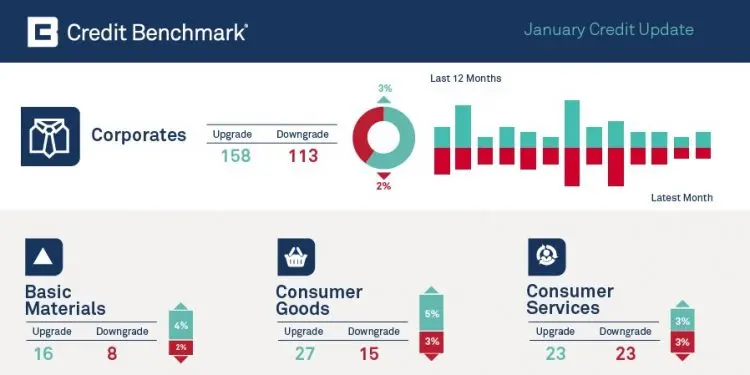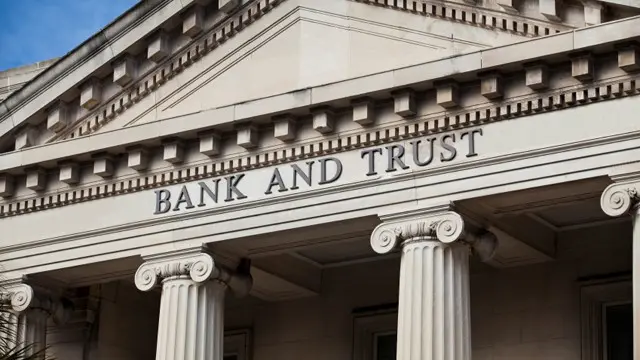Risk.Net: February Credit Data Review

“Cyril Ramaphosa has a lot on his plate. The new South African president succeeded Jacob Zuma on February 15, after allegations of corruption triggered his predecessor’s resignation, and will now have to grapple with the Zuma legacy, severe and spreading water shortages, and entrenched inequality.” In this series of monthly articles from Risk.net, David Carruthers, […]
The Dow’s Wall of Credit Worry Has Topped Out

Bull markets are said to “Climb a Wall of Worry” – and in 2017 the Dow Jones did just that. Despite a new President, rising interest rates, tensions with N. Korea and impending changes at the Fed, the key US equity indices continued to climb. They ran into some volatility recently – just in time […]
Vienna Summit Highlights Cyber Risk, Climate Impact, IFRS9 issues and Tail Risk

The 11th Annual Banking and Credit Risk Summit in Vienna this week included discussions around IFRS9 implementation challenges, and how lessons learned in Europe can be applied to CECL solutions for US banking subsidiaries. Another key theme was the increasing prevalence of new sources of credit risk, such as Climate Change. Dr. Georg Musil from […]
Bank-Sourced Estimates Pass The Observed Default Rate Test

Bank-sourced data provides a broad cross section of forward looking default risk estimates. This dataset now also includes sufficient history to address a key question – how realistic are these estimates? Rating agencies, such as S&P, publish historically observed default rates. The publically available Annual Global Corporate Default Study and Rating Transitions, published by S&P […]
January Credit Update: Upgrades Significantly Outnumber Downgrades

Credit Benchmark has published the latest monthly credit consensus data (from December 2017), with 20 contributor banks now providing bank-sourced credit views (CBCs*) on more than 14,000 separate legal entities over the past 12 months. Monthly consensus upgrades and downgrades: 449 obligors improved their credit standing by at least one notch. 324 obligors deteriorated. 78 […]
Bank-Sourced Credit Improvements Mirror Recent Emerging Market Debt And Eurozone Moves

The current U.S. economic stance favours a weaker dollar but rising U.S. interest rates – a policy mix that would typically be bad for Emerging Market debt. But the Financial Times reports that the latest EPFR data (https://www.ft.com/content/b242b974-02aa-11e8-9650-9c0ad2d7c5b5) shows a continued appetite for Emerging market and Peripheral Eurozone debt. The main focus for inflows is […]
Recent BIS Reforms: Implications for RWA modelling

The latest BIS reforms were announced in December 2017, and are mostly expected to be in place by 2022. These will: Remove the option to use the Advanced IRB (A-IRB) approach for certain asset classes Adopt input floors for probability of default (PD) and loss given default (LGD) Provide greater specification on parameter estimation to […]
November Credit Update: Downgrades And Upgrades Balanced

Credit Benchmark has published the latest monthly credit consensus data (from October 2017), with 18 contributor banks now providing bank-sourced credit views (CBCs*) on more than 13,000 separate legal entities over the past 12 months. Monthly consensus upgrades and downgrades: 282 obligors saw improved consensus in their credit standing by at least one notch 248 […]
Retail Industry Trends

US Retail Sector: Credit Trends December 2017Retail Industry Trends “The number of people visiting U.S. stores on Thanksgiving and Black Friday fell 4% from last year, according to RetailNext Inc., which analyzes in-store videos to count shoppers. Meanwhile, online sales increased 18% over that period, said software company Adobe Systems Inc., a shift that is […]
Bank-Sourced Credit Indices

October 2017Credit Index Executive Summary Download the PDF “Bank-Sourced Credit Indices” Overview This paper presents a new and unique way of tracking real-world credit risk, using bank-sourced data to construct indices based on forward-looking credit risk estimates. Indices derived from real-world credit estimates tend to show low correlations with other risk-related macroeconomic data, providing an […]